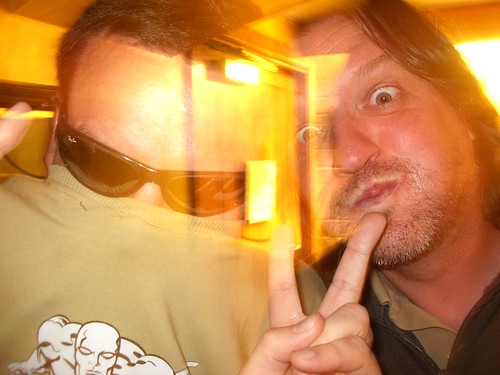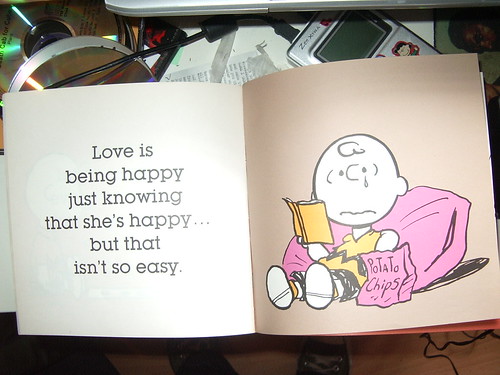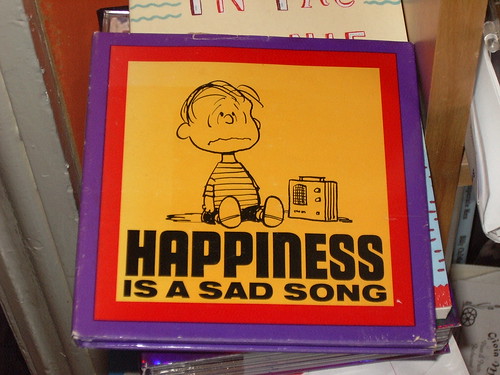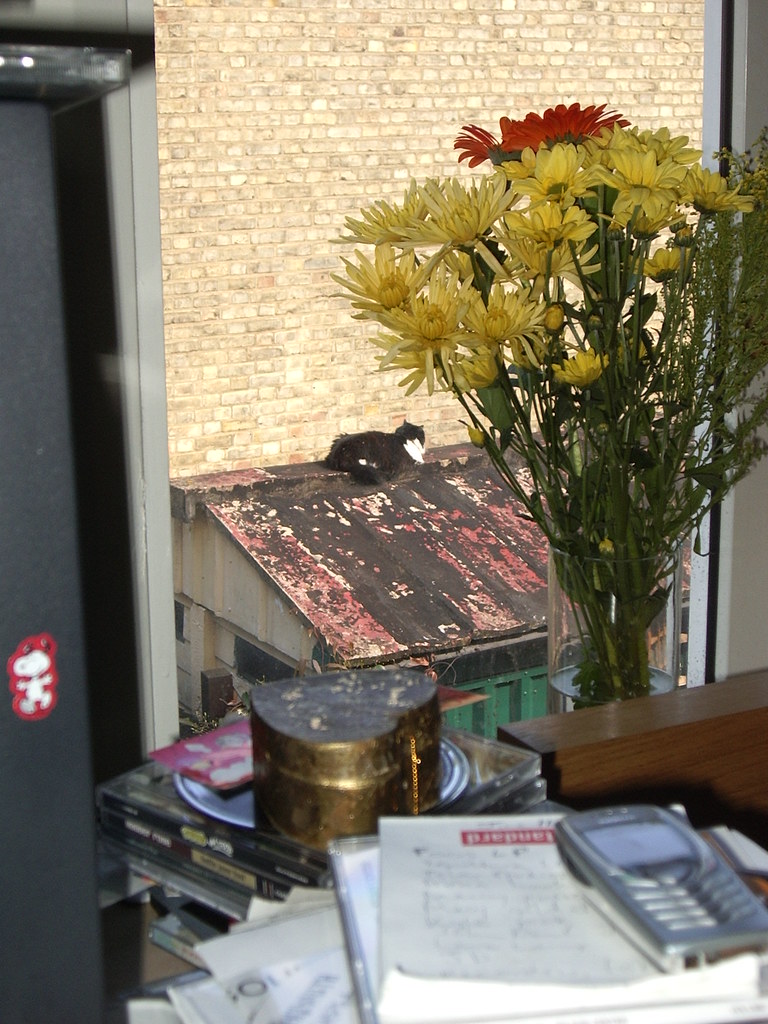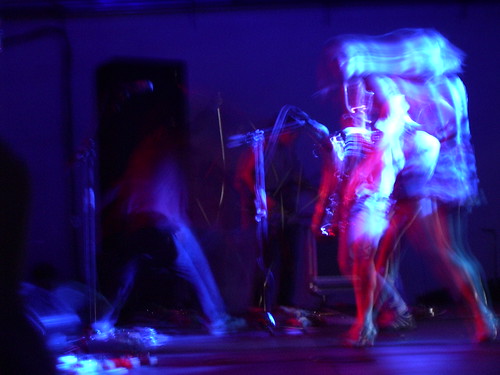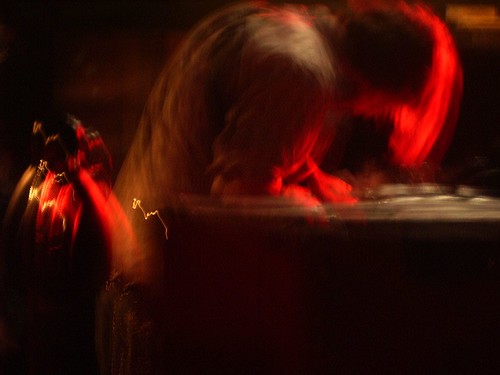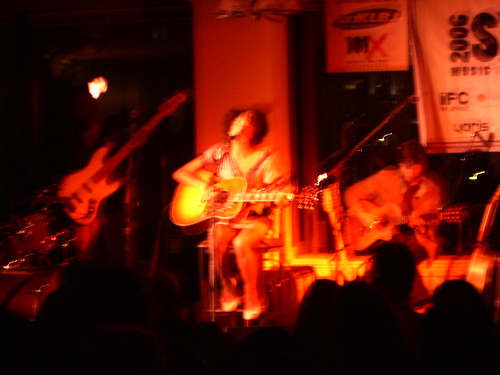
[wrote this for Mojo earlier this year. the trip was a blast, we got to hang out at Dave's amazing studio, which was a bit of a headfuck for me as it was designed after the blueprints for Abba's Polar Studios in Sweden, where I first met Turbonegro a couple of years before. Dave's studio was awesome, as was Dave. he's called the 'nicest guy in rock' for a very good reason. as a teenaged Nirvana obsessive, interviewing Grohl was a Big Deal.]
When Led Zeppelin bassist John Paul Jones recently visited his friend Dave Grohl’s newly-completed 606 Studios, out in the wastes of Northridge, California, he was struck by the most peculiar sense of deja vu. With a budget of $750,000, Grohl modelled the luxurious wood-panelled rock’n’roll playhouse after Polar Studios, the Abba-owned facilities in Stockholm where Zeppelin recorded their swansong In Through The Out Door in the winter of 1978.
Furnished with state-of-the-art studio equipment and all the high-end entertainment technology a resting musician could desire, 606 serves as HQ for the big Rock’n’Roll Show-business operation Grohl’s Foo Fighters swiftly became, after the release of their 1995 eponymous debut album. But it also betrays a human touch, that of Grohl himself, the incurable music obsessive. “I’m embarrassed when people ask me about my interests outside of music,” he laughs, later, “Because I have none.” Fittingly, the walls are crammed with gold and platinum disks awarded to Foo Fighters and Nirvana, and Grohl’s prodigious session work with buddies like Queens Of The Stoneage, Nine Inch Nails and Killing Joke. They hang alongside framed iconic images of The Who, Led Zeppelin, and Nirvana themselves (sitting with a fitting dignity alongside such canonical legends). The sofas cradle cushions fashioned from Dave’s old Breeders and Black Sabbath tee-shirts (the work of his still-doting mother), while a poster for the Motley Crue reunion tour gazes down upon the mixing desk, vandalised so it’s tagline reads “The band you hoped [substituted for “thought”] you’d never see live again”.
The first album to be completed at 606 is Foo Fighters’ fifth album, In Your Honor; indeed, finishing touches to a last-minute addition song on the album are being administered as we chat to Dave, in 606’s control room. An ambitious double set, divided into one disk electric, one disk acoustic, In Your Honor explores the dichotomy at the heart of Grohl’s music, between the hammering, relentless riffage of the first disk, and the gentler, more melody-driven material of the second. The ideas for the electric set came so fast and so plentifully that Grohl is considering offering them to aspiring rock bands via a website he‘s envisaged, called ‘www.spareriffs.com’; the second album was originally planned as a solo, and includes a beguiling slice of faux-bossanova, accompanied by one Nora Jones (‘Virginia Moon’), and a reworking of ‘Friend Of A Friend’, a song Grohl wrote fifteen years ago, just after he joined Nirvana. Caught between the extremes of Grunge’s vaunted quiet/loud dynamic, Grohl seems to thrive on the contrasts, as you might expect from a man who survived the journey from hardcore’s gritty heartlands to the surreality of rock’n’roll superstardom mostly intact.
I have it on authority that you have John Bonham’s runic symbols from Led Zeppelin IV tattooed in various places about your body…
Well, I didn’t want to get a tattoo of Tweety Pie smoking a joint. [laughs] When I was fifteen or sixteen, my friend got one of the first CD players, and we listened to Houses Of The Holy a thousand fuckin’ times, listening close for the squeak in the bass drum pedal! I was just amazed by Bonham’s sense of feel. He’s still the best rock drummer in the world, no one can touch him. He was such an inspiration. Before that, when I was twelve or thirteen, I gave myself a Black Flag tattoo, prison style, with a needle and pen ink. [Reveals three puny, faded green bars on his left forearm]
There’s only three bars there. The Black Flag logo has four bars.
It hurt.
Thirteen is young for your first tattoo; were you a prodigious concert-goer as well?
My parents took me to the Ohio State Fair when I was 2 years old, in 1971; the Jackson 5 performed, but I don’t remember anything about it. [laughs] I didn’t grow up going to ‘rock concerts’. I saw [Chicago post-punk quartet] Naked Raygun back in 1982, at the Cubby Bear in Chicago. I was 13. I loved the intimacy of it; I talked to the singer and I jumped on someone’s head and I felt completely at ease with the band and the audience. It was just a bunch of people having a good time. That’s where my perspective on rock comes from.
The first time I went to a ‘big’ concert was the ‘Monsters Of Rock’ in 1987, at a stadium in DC: Kingdom Come, Metallica, Dokken, Scorpions, and Van Halen. After five years of going to see Bad Brains, MDC and Slayer at smaller club gigs, seeing this stadium gig and standing far enough from the stage that it was taking four seconds for the sound of the snare drum to hit me made no sense at all.
You always loved drums, then?
I remember being inspired by Edgar Winter’s ‘Frankenstein’. Up until that point I would just listen to whatever my parents or my sister were listening to, the West Side Story soundtrack, Carly Simon, and the Beatles. But when I heard ‘Frankenstein’, I thought, wow, everything about this song stands out, the riffs, the keyboards, and particularly the drums.
That summer, one of my cousins gave me Rush’s 2112, and I don’t know how, but I could tell what each individual piece of the drum kit was doing; I knew which sound was the hi-hat, which sound was the ride cymbal, and so on. I learned about drums by setting my pillows up on my bed and on the floor, and beating along on them with these big fucking marching sticks I stole from a friend. The house I grew up in is really small, and I couldn’t afford a drum set until I was seventeen - I’d wait until the drummer in my band went home after practice and play on his kit.
Did you ever sense a conflict in loving both old skool rock and punk?
My first punk-rock moment was going to see the AC/DC movie, Let There Be Rock. It was the first time I’d felt that energy, like I just wanna fuckin’ break something, I’m so excited that I’m losing my mind! It was dirty and sweaty, fuckin’ beautiful. I liked the more aggressive side of things. So hardcore and punk-rock and thrash metal were like a dream come true, pushing that energy to an extreme. The thing I didn’t like about a lot of rock music was the superhuman pretension - at an early age I was suspicious of it, cynical. I had a Kiss poster, but I didn’t like their music, I liked them as comic-book characters. But I also had an AC/DC poster, Malcolm Young wearing jeans and a tee shirt, hasn’t taken a shower all week, drunk and just fuckin’ playing music for the sake of playing music. I thought, I wanna be that guy.
You grew up in Northern Virginia, spitting distance from Washington DC. Did you get to experience DC’s legendary hardcore scene, bands like Bad Brains and Minor Threat?
When I discovered punk-rock, the only punk rockers I’d seen were on Quincy [1970s TV series featuring Jack Klugman’s titular Pathologist, and a lot of genuine punk extras]. The punk-rock kids out here in LA realised they could get extra work for money, fuckin’ went for it, like Pat Smear [former Germs/Nirvana/Foo Fighters guitarist]. When I found out that hardcore bands was ‘hatched’ right in my backyard, I flipped out. And it took me a while to work out how to find that scene, because it wasn’t in nightclubs, it was in community centres and Knights Of Columbus halls.
Most of the ‘scene’ came from DC and Maryland, not from Virginia, which was right there on the Mason/Dixon line. Though I wasn’t raised a complete redneck, I grew up with duck-hunting and pick-up trucks. The DC hardcore scene was almost impenetrable - it was hard to get into that scene as an outsider. It took me about a year before I finally found it. And then I couldn’t get out of it.
After playing in a number of smaller punk-rock bands, you joined DC hardcore legends Scream in the mid-eighties…
I first saw them was in ‘83; I was still a kid, and they were so fuckin good. And when I discovered they were from Virginia they became my heroes. I walked into our local music store one day to buy some drumsticks, and on the bulletin board it said ‘Scream: Looking for drummer’. I called them up, lied about my age (I was seventeen), and Franz [Stahl, guitarist] reluctantly invited me to meet him at a basement underneath a head shop in Virginia. He was waiting there with his little practice amp set up. He says, okay, you wanna play some covers, some Zeppelin or AC/DC? And I said, no, let’s play some Scream. And we ran through the guys’ whole fuckin catalogue, note for note, front to back. He was really surprised, and they asked me to join.
And I freaked out. I didn’t know if it was time for me to give up High School and do what I really wanted to do or not. But I saw Scream play about a month later and realised, I had to be in the band. And I dropped out of High School, because I now had a tour coming up in two months of the South East, then we were doing Europe in the Fall. I thought, I’ve never travelled further than Ohio.
So you joined what Michael Azzerad described as the Hardcore Underground Railroad.
I fell in love with that scene because it was such a strong community: all fanzines and tape-trading and independent booking agents, stuffing your own sleeves, making your own singles, screening your own tee shirts, stuffing your equipment in a van and sleeping on people’s floors. The motive was so pure. I didn’t even care if I ate, I just wanted to play. It was such a beautiful thing, like living in a commune.
But Scream had had a rough ride. We’d never come home with any money, but while we were on tour, we’d get somewhere to sleep, people would feed us, we’d maybe get a couple of beers at every show. And that was fine, it was enough. But then people would quit because they couldn’t take it anymore, some people started getting fucked up on drugs. I started thinking working at the Furniture Warehouse wasn’t so bad; you can only eat so much Taco Bell.
We hit Los Angeles on our last tour in 1990, and our bass-player quit, so we ended up staying with the guitarist’s sister in Laurel Canyon. She lived with two mud wrestlers at the Hotel Tropicana, so we were surrounded by beautiful girls, we could drink for free at the Tropicana… It was terrible [laughs]. Because we didn’t have the band; if we’d had the music, it would have been heaven.
The Melvins came to town, so I hooked up with my friend Buzz Osborne who said, have you ever heard of Nirvana? Because those guys saw you play in San Francisco, and they’re looking for a drummer, and they were real impressed with your drumming, call them.
We talked about music, we loved everything from Neil Young to Public Enemy, from Black Flag to Black Sabbath. Right off the bat, it seemed pretty compatible. So I went out to the record store and bought a copy of Bleach, and played it ten times and went to U-Haul and bought a big fucking cardboard box. I dismantled my drum kit and telescoped them into a shell, threw my duffle bag in it and duct taped it up, and just flew up to Seattle.
When I showed up there with my one box, nothing else, I was greeted by Chris and Kurt. I really only knew them from the cover of Bleach, and they looked like these dirty fuckin’ biker children. I didn’t expect them to be as sweet as they were; Chris and Kurt were both the sweetest people in the world, they wouldn’t hurt a fly. We jumped into their old van, went up to Tacoma, to Chris’s house, and I started living there.
You were writing and recording music of your own at this point… You released the ‘Pocketwatch’ cassette with Barrett Jones on Simple Machines, in 1992, and one of those songs, ‘Friend Of A Friend’, appears, reworked, on the new album.
I’d written songs before, for Scream, and in my friend’s basement on a four-track, but that was the first time I’d written something that was so naked. I wrote that song when I first moved up with Nirvana. After living with Chris in Tacoma for a month and a half, with Chris, I moved down to Olympia with Kurt. We lived in this tiny apartment that was just an absolute fucking dumpster, and I was on a sleeping schedule where I would go to sleep about 6.30 in the morning, and wake up maybe around 4.30 in the afternoon, just as the sun was going down.
We were doing a lot of rehearsing in this barn out in Tacoma, and we had no television. It was just a small stack of albums and a four track, cigarette butts and corn-dog sticks everywhere; my home was the couch, which was about four and a half feet long, and I’m six feet tall - it was just a fuckin’ nightmare. I wrote the song one night and recorded it while Kurt was sleeping. I was just writing about these people I’d just met, myself included, because I had a lot of time to sit around and think.
Was there a single moment when the mania that surrounded Nirvana, following the success of Nevermind, started to get out of control?
It wasn’t until I came home and had a Gold Record and we were on Saturday Night Live that I realised, okay, now this is fuckin’ crazy. But it still seemed somewhat natural at that point, because we weren’t playing stadiums, we were still playing places that held 2000 people. It hadn’t gotten to that Monsters Of Rock, four-seconds-before-the-snare-hits-the-audience level yet.
The thing I started to notice was, people were starting to pull. People would pull you to an interview, or pull you into the dressing room, and people would push you onstage. And that’s when I thought, okay, this is getting a little weird. There were times where I’d excuse myself from an interview to have a piss, and have an extreme anxiety attack, like, why am I so stressed, so nervous? I was really happy, I didn’t feel down or depressed, I felt elated. But I was pretty overwhelmed. And if you think about it, I was only in that band for three and a half years, so everything happened over such a short period of time. A lot of its kind of a blur.
You were three kids from the underground punk scene; you were hardly prepared for what followed…
I think that’s a cop-out. Anyone could handle what I do, it’s a fucking luxury. I never didn’t want it. I just never expected it. We never had that world domination career ambition, because our kind of music made it impossible that we could be the biggest band in the world. People get fucked up when they have that insane ambition. If music’s not enough, not its own reward, don’t do it. When I worked at Furniture Warehouse and only played music at the weekends, that was my vacation; those weekends meant so much to me. And I still have that feeling.
I‘ve heard stories of drunken Queen-themed Karaoke parties and other shenanigans on the Nirvana tour bus during this era, which contrary to the reputation for misery Nirvana gained after the tragic fact.
People have this idea that the band travelled with a black cloud following us everywhere we went, and it’s absolutely not true. The memories that I revisit are great; we had so many fucking good times, good laughs. A lot of it was dangerous, a lot of it was fucking dark. But not all of it. The way the whole thing ended leaves everyone with a little bit of the black cloud, but honestly, it was so much fun.
You shied away from music, immediately after Kurt’s death.
How can I explain it? If you have someone that’s close to you, a family member or someone that you love, and they disappear or pass away… Imagine walking into their bedroom full of things every day. That’s exactly how playing music felt to me, because that was my whole world. It was difficult to listen to music, whether it was Ry Cooder’s soundtrack to Paris, Texas, or Ride The Lightning. I had to disconnect. And I couldn’t imagine getting up there and playing the drums with someone, and not thinking about Nirvana. I think about Nirvana every time I sit up to play the drums.
You received a postcard from Seven Year Bitch, who’d just lost their guitarist Stefanie Sargent to heroin, that read “We know what you are going through. The desire for music is gone now, but it will return. Don’t worry.” What followed next?
I worked with Mike Watt, for his solo album, Ball-Hog or Tugboat? He’s so inspirational; he’s a ‘lifer’, he does it because he loves it, and he’ll never stop. Then Tom Petty called and asked me to join the Heartbreakers for their SNL appearance. That guy’s one of America’s greatest song-writers. Within two days I felt like a member of that band. They were the sweetest, most welcoming people I’d ever met in my life. And we sounded good. I just did that one performance, played two songs, but it was fuckin’ great. I never asked Tom why he chose me; I think he said something about his teenage daughter being a Nirvana fan and making him do it.
Was this the first example of Dave Grohl, the Hardest Working Man In Showbusiness? Drumming for Killing Joke, QOTSA, Garbage, Cat Power and Nine Inch Nails; your own all-star Probot project…
It seems like after that, the ball started rolling, and it hasn’t stopped ever since. And that was eleven years ago. There’s nothing I’d rather do. Imagine, when a friend of yours who’s in one of the coolest bands calls you up and asks if you want to be on the new record. What, are you gonna say no?
Is there anyone you’re still itching to play with? Mojo could hook you up…
The next project that I’m trying to initiate involves me on drums, Josh Homme on guitar, and John Paul Jones playing bass. That’s the next album. That wouldn’t suck.
Back when you were working on the first, self-titled record, did you have even an inkling of the success Foo Fighters would achieve over the next decade?
Honestly, that album just came from melodies and demos that I’d recorded on an 8 track in my house, which I’d been doing since Nirvana had been a band. A lot of those songs were written while I was still in Nirvana, or just before Nirvana. The idea wasn’t to form a new band and start over; it was to go down to the studio, down the road, and book six days, which is the most time I’d ever spent recording music of my own. To me it seemed so professional. I wanted to start a label on my own, release the album with no names on it, no photos, call it ‘Foo Fighters’ so people thought it was a band, kinda like Stewart Copeland did with the Klark Kent record. The intention was to make music, and knowing I was still in the shadow of this thing that was Nirvana, in order for people to be objective, it had to be completely anonymous. That was the original idea.
Now, of course, Foo Fighters are a ‘proper’ rock band, one of the world’s biggest, and you can do pretty much whatever you wish. Is there anything left for Dave Grohl to achieve?
Every album opens the door to whatever happens next. Every record we’ve made I always imagined being the last. I can’t imagine being any more blessed than I already am. But, for once in my life, I’ve made a record I don’t want to be the last. Whether it’s the sheer volume of music we‘ve recorded, or exploring those two dynamics to their extremes, its opening doors I can see through for ten more years. And that’s never happened.
Did last year’s With The Lights Out box set mark the end of the Nirvana legacy?
That box set was pretty full; I think there’s maybe some demo tapes hanging around from Kurt’s house that we haven’t heard. But there aren’t many Nirvana out-takes, we’d go into the studio with twelve songs, record them, and that would be the record. But I’m sure they’ll find something to dredge up and slap on a disk somehow…
When you think about Nirvana now, what’s your take on the band and what you experienced?
To me, to this day, when I think of Nirvana, it doesn’t seem that different to me to Scream, or Dain Bramage, or Freakbaby or any of the other bands I was in as a kid. Some of them might get platinum albums, some of them might work at a Furniture Warehouse on the weekend, but they‘re just bands, thay‘re just people. Do I imagine the Pope is an angel sent from heaven? No, he’s just a human being. Do I imagine Jimmy Page spawned from a jackal in Egypt? No, he’s just a great guy, a human being, and he got to play music. It’s hard for me to think of things in terms of cultural relevance, because I don’t have that perspective on it. It’s hard to be that objective, when you were in the band. Honestly, it was just a band.
[Laughs] Admittedly, it’s hard for me to accept that Led Zeppelin were ‘just a band’. But I can say it about Nirvana.
(c) Stevie Chick 2005



